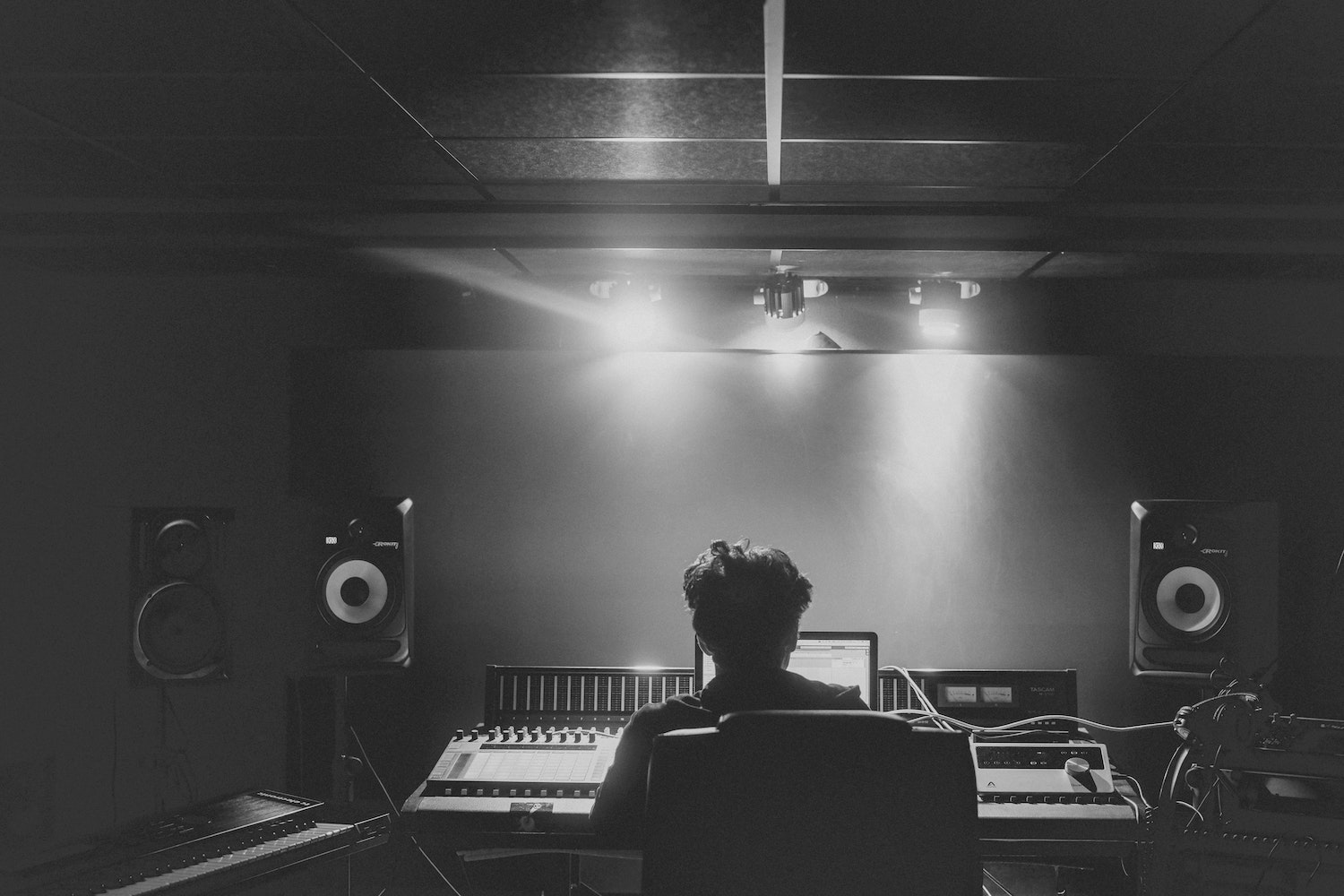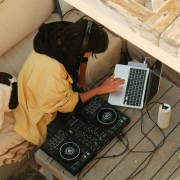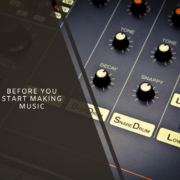How To Compose With Consistency
I’ve always been interested in the restaurant industry and particularly with the whole process of how they give awards like Michelin Stars. There are a number of criterias that will define if a chef will earn one and I find there is some inspiration to take from those points to apply them to one music producer’s work. While there’s no written notes on what the criteria are, what we do know is that there are key points such as ability, quality, and the chef’s personality. However, one that really stands out is consistency.
This is a common shared topic with clients of mine. Everyone pretty much dreams of finding a formula that will make sure each song is good and that each time they hit the studio, something worthy will come out from the time invested. There are straightforward ways to make sure we get there but there are also some points that I will explain that might be a bit unsettling.
Managing Expectations
It’s always a bit hard to talk about expectations with clients. There are a few points to keep in mind when it comes to that. First, many people are passionate about music in the first place and rely on that hobby for multiple hopes such as, acceptance and validation from their community or other hero producers of theirs. This alone creates some big goals, which creates stress that can glitch creativity and productivity. Same for other producers who have released some music and feel a pressure to do more, but they’re facing some tensions towards what they do: feeling of being inadequate, hitting technical limitations, unfair comparisons to others, etc.
I personally don’t really believe that having constant positive sessions from the studio, where you are 100% happy with your music, is humanly possible. For those who do, I would also question how much fun that is since in the long run it can be really stressful and tiring.
So rather than having perfect consistency in music, I think it’s better to change the approach to defining what your victory conditions are. In the Definition of Done article we covered how to set yourself clear points to know you’re done with a project while accepting how many imperfections you can live with. But victory conditions are slightly different, yet, also similar.
So for instance, I used to know some professional musicians that were forcing themselves to go to the studio everyday and make one song minimum. Since I worked with them, I had the chance to listen and I had to say I thought the songs they showered me were interesting about 5% of the time (there were a lot of them). We talked about it and realized not only was he not happy about the situation nor the outcome, but he also realized he was just not achieving anything he hoped for. So we worked together to shift his workflow and expectations.
I proposed my non-linear music making technique where he would work on several tracks at once instead of one song at a time. I also talked about what he loved doing so we can make sure that part would be at least 50% of his studio time. In his case, he loved sound design and creating new songs which are perfect. I showed him that music can also be about that and that making music is an important part of music making but it is not the only part of it. Starting new songs is, to me, just as important as finishing them. The more you start one, the better the odds to really create solid and original ideas. Then you harvest the best ones to turn them into a song. We also revised different ways to do sound design and techniques to try.
This changed a lot the outcomes of his music and the quality of the following tracks got much better, even if the pace of them coming out got a hit. This is why I sometimes encourage people to focus on tracks made per season instead of days, or weeks.
Victory Conditions
We all have different conditions and there’s no real best way to do this but I find that victory conditions should be different than releasing goals. Some people feel victorious if they get their album out after months of work, but soon they want more of it and then they face a return to the studio that feels like a pain. In my case, after years of experience, I find that my victory conditions has boiled down to having a blast when I’m in the studio, even if that implies working hard on solving issues.
This implies two different things: First, there is a part of me that is there to solve issues, install gear, create an environment that is workable and fix details to ensure all is well. Second, I have to prepare for my conditions by making sure that I have all the necessary skills to make music. So, if in a Definition Of Done, we set the points that would make us see we’re done, in the Victory Conditions, we establish what is needed to go there and what is also to make it possible.
Since for me, it is related to fun, I had to reverse engineer it.
That implied that I had to look back at a really fun session and see what happened to make it work, and to enjoy it. More often than not, while a session can be ruined by technical problems, it’s clear that some sessions in the studio should be dedicated to preventing issues, but also, some other sessions would be dedicated to practicing a technique or new concept, so that when I hit the zone, I have all on hand.
So what about you?
In the development of an artist, there are numerous stages and phases. You might be in one that is so challenging that the fun doesn’t happen too much. It might be because you feel overwhelmed by a specific issue, some software limitation, lack of knowledge on a topic and aiming for fun might seem a bit of frustration. The thing is, if that can help, I have to say that there has been many years in my life where I accomplished so many things without knowing much and that the more I knew, the more I slowed down. I often say that it’s important to finish something and learn rather than chase perfection.
In other words, whatever you are struggling with might actually be a distraction. There are a lot of things to learn on Youtube and if you can’t find it, there are always people to help – that includes me. You don’t have to stay with a problem for long nowadays, compared to times before the internet’s abundant tutorials.
Perhaps you can create conditions where you work on a few things at once, small things and try to make the most of that.
Quality Control, being practical
We talked about the philosophical and workflow part of this topic but what about the technical side of things? What are some of the main elements that do maintain consistency between songs?
There are multiple points you could use a checklist. After years and years of working on music, I do see correlations between songs that manage to get some kind of success. I won’t dive into the promotion, releasing and anything unrelated to production though because that’s a bit of a rabbit hole which changes every 3-6 months. I can’t follow.
In music making, I feel there are 2 types: commercial and artistic.
By commercial, I don’t mean it in a derogatory way. I’m basically relating to music that is intended to be pushed for sales. If you make music and want distribution, there are chances the distributor might turn it down if they consider it will not sell enough. This is a norm for P&D (press and distribution) deals, because the distribution is basically covering the costs and will expect a ROI (return on investment). In my book, if you make music with the idea to make sales, it is mostly and clearly commercial (eg. we’re producing it in a sales angle).
On the other hand, artistic music might be simply digital or released at the expense of the artist, without distribution and there is very little expectation of sales. This kind of music is often a bit more edgy, abstract, risky, not following many rules and has a bigger chance of not being able to be fitting any rules.
If we compare that to a restaurant, the commercial one is often knowing what sells and will feature a direction, style with some star dishes that people want each time they visit. The artistic ones would be a restaurant where they change the menu each day and take risks.
They both need consistency on a number of things: fresh ingredients, recipes being respected, taste being coherent on each serving, temperature, etc.
It’s pretty much the same with music as well. There are certain criterias you can follow that will ensure that your songs will always deliver. Sometimes it might not have the same punch but if you cover the basics, you’ll have for sure some coherence.
Here are the criterias I have in mind:
- Solid hook, main idea. What makes the reason for a song to exist is that you found a solid idea you want to share a story about. That’s how I see music. If you think of traditional music, people write a story and that will be the main idea. For electronic music, more than often there will be no vocals so the sounds and ideas are your story. Don’t make songs for the sake of it (note: I encourage people to make music for the sake of it though, which is different). Find an idea and build a story about it. It can be a sample, a pattern, a fun sound… There’s no rule here but to find one thing you want to listen for 3-6 minutes and really push forward that idea.
- Song in key, scale. This might sound weird, especially for people making atonal music or industrial techno who use a chromatic scale, but making sure all your elements are in key will give the song a much more wholeness to it. Not all songs follow one but having a coherent harmony will please many people, especially if in a specific genre, some scales are respected. Optional point here would be chord progression. You don’t always need one but if you have one, make sure that it is solid and coherent. Often when I give feedback to people who are starting in music production, I notice they aren’t respecting this basic point and once they do, they really bring it to another level already.
- Rule of thirds in arrangements. This is a bit of a concept I bring up in feedback where I explain to producers that if they divide their song in 3 sections, they all should have some variation, to give the listener a sense of evolution and to keep the attention. If you understand the listening experience as a challenge of keeping attention, you know you need to bring new ideas, but not too much. The rule of third never fails. If you compose pop or anything needing a structure, keep that in mind as well.
- Flat mix, coloured master. Clients don’t always understand what a good mix is. If you keep your tone flat but work with an engineer that can color it to match similar songs on the market, you’ll most likely always have a solid, enjoyable song that can compete well. Also, a flat mix means that your elements are not too all over the place, which is important.
- Avoid masking, phasing. This is more technical but if you have a busy mix where many elements are used, you’ll most likely end up having a muddy mix. I won’t go into how to fix this in this post and you can google about it but keep in mind that it’s essential to quality.
- Get Feedback. Show it to people you trust and ask for specific feedback. Otherwise people will say its cool. Be technical about what you need from them.
- Get help. I don’t understand why people want to do everything themselves. It’s basically setting you up for average music. You’ll learn yes, but why not become a master at making music you love doing and get a master to help you mix so you get the most of it? It’s like, if you want to make a sandwich but you want to make the bread yourself, mayonnaise from scratch, grow the veggies, make the cheese, etc. Yes you can, but you could also buy the best ingredients possible and have a killer sandwich too.
- Quantity for quality digging. If you see each song as an experiment to learn something new or master a technique, you can speed up your process and make more music. A good way to keep up with quality is to producer many, many songs and then trim down your output to the ones you know are shining. The more you finishing music, the more you’ll develop skills, which make sure the following tracks are better quality. Then when you can pick what you share abroad, to the outside world, they’ll only see quality.
If you cover these points, you’ll most likely have something you’ll be proud of and when you share a song, people will know what to expect from you, even if you take risks, creatively wise.












Leave a Reply
Want to join the discussion?Feel free to contribute!